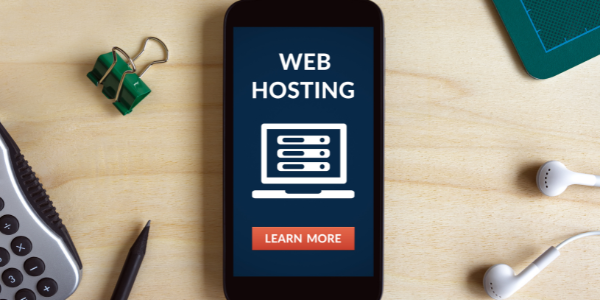Site security is a top priority for any web hosting company. While site security is important, it\’s not the only consideration when choosing hosts and services. You also want to make sure your site is accessible and available 24/7, and that your hosting service understands how to secure your site. Here are five tips to help protect your website:
5 How to Keep Your Site Safe and vulnerable to attack.
In order to keep your site safe from attack, it’s important to be aware of the risks involved with hosting your website. You can protect your site by using security measures like firewalls, anti-virus software, and proper password management. Additionally, be sure to use good security practices such as regularly updating your passwords and encrypting your files.
Be Aware of the Risks of Web Hosting
- Web hosting presents another risk that you should be aware of. Many providers offer services that allow third-party developers to access and hack into your site. If you don’t want someone else gaining access to your data or site, it’s important to use a web host that features secure login and password protection system. Additionally, make sure to research any potential viruses or malware on the provider’s website before you sign up for service. By being aware of the risks involved in hosting your website, you can reduce the chances of it being attacked in the future.
Find and Use Good Security Practices
- Last but not least, it’s important to find and use good security practices when creating and managing your passwords. Password management software like One password can help you keep track of all of your passwords and remember them easily – making sure they never fall into the wrong hands! By using these tips, you can reduce the chances of being hacked or losing sensitive information on your site.
Protect Your Site from Phishing and Other Attacks.
2.1. Use Firewalls to Protect Your Site from Attack
- Firewalls are one of the most important pieces of protection you can put into place on your website. They help to stop traffic from coming in and attacking your site, and they can also be used to protect your data and personal information.
2.2. Use Malicious Software to Attack Your Site
- Malicious software is a type of malware that malicious actors use to attack websites. This software can be used to steal data or to inject hacking worms into websites. It’s important to be sure that any software you choose for security purposes is reputable and has been tested by independent experts.
2.3. Use an Anti-Phishing Solution to Protect Yourself From Phishing Attacks
- An anti-phishing solution will help you prevent yourself from being phished, or taken advantage of in an online attack. This could include using common sense measures like verifying the identity of the person you’re talking to on the phone, asking for personal information over a secure network, and not sharing personal details with anyone you don’t know well.
Use a Secure SSL Certificate.
- SSL (Secure Sockets Layer) is a security protocol used on websites to ensure the privacy of your data. When you upload or store your data through a web connection, you need to use SSL to ensure that your information is not accessible by unauthorized third-party attackers.
3.1. Obtain an SSL Certificate.
- The first step in securing your website is getting an SSL certificate. A good way to find an SSL certificate is to search for online certificate authority (CA). A CA ensures that the certificates received from different sources are valid and that the site you are visiting has been trust-verified.
3.2. Use a Secure Socket Layer Security Key Management Protocol.
- When setting up your website, make sure you use the correct security key management protocol (SSL/TLS) so that only authorized individuals can access your site\’s security key. You can configure your web browser to use this type of security when browsing through HTTPS sites, but it is also important when sharing files with others online or exporting sensitive data from your site over HTTPS.
How to Optimize Your Site for Search Engine Rankings.
Web hosting is a key factor in how well your site appears on search engines. To ensure your site ranks higher, follow these tips:
- Optimize your website for speed and accuracy. Make sure your pages are written in clear and concise language that’s easy to understand for humans and search engines.
- Use keyword-rich titles and descriptions on all content, including the front page of your site. This will help attract more visitors and rank your site higher on search engine results pages (SERPs).
- Place important keywords at the beginning and end of each page of your website. This will help you get noticed by Google and other search engines when looking for pages related to your topic or business.
- Develop strong link back chains from relevant URLs on your website to other websites that share similar content or topics links with in images. Create effective MariaDB database systems that are optimized for SEO purposes.
Tips for Keeping Your Site Safe and Secure.
- Web hosting is a great way to host your website. However, there are a few things you can do to make sure your site remains safe and secure. In this section, we’ll discuss five tips for keeping your site safe and secure.
Protect Your Site from Spammers and Hackers.
- One of the most important steps you can take to protect your site from spam and hackers is to use antispam protection tools. This means installing a firewall, using security checker tools, and using other methods to help prevent unauthorized access and data entry.
Install a Firewall
- Install a firewall on your computer so that only authorized people can access your site. This will help protect your data from being accessed by unauthorized individuals.
Use Security Checker Tools
- Use security checker tools to help ensure that the information you provide on your site is correct and valid. These tools can help you detect viruses, Trojan horses, and other malicious programs that could damage or steal your information.
Protect Your Site with a Strong password.
passwords are one of the most important pieces of web hosting security. Without strong passwords, your site could be vulnerable to attack. To protect your site with a strong password, use these 5 tips:
- Make sure you have a secure password system in place.
- Use different passwords for different sites.
- Create multiplexes for different accounts and websites.
- Use unique characters and numbers in your passwords.
- Only use secure words and phrases in your login and password fields.
Your site could be vulnerable to attack if your passwords are weak. Use these 5 tips to protect your site with strong passwords:
- Make sure you have a secure password system in place.
- Use different passwords for different sites.
- Create multiplexes for different accounts and websites.
- Use unique characters and numbers in your passwords.
- Only use secure words and phrases in your login and password fields.
Use a Secure Site Infrastructure.
- To protect your site from unauthorized access and theft, use a secure website infrastructure. This can include using a password-protected firewall, encrypting your file systems, and protecting your server passwords with 2-factor authentication.
Keep Your Site Safe and Secure.
- Use a Secure Site Name and Domain
- Use Secure Sockets Layer (SSL) Security for Your Site
- Keep Your Site secure with One-Time Password Protection
- Use Data Encryption for Your Site
- Use Firewalls to Keep Your Site Safe
- Protect Your Site with a Good Security Strategy.
Conclusion
In order to keep your site safe and vulnerable to attack, you need to take some steps to protect it from ransomware, phishing, and other attacks. Use a secure SSL certificate, use good security practices, protect your site from spamming and hackers, and keep your site infrastructure strong. By taking these precautions, you can ensure that your site is protected from any potential threats.










